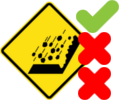South Sudan (/suːˈdɑːn, -ˈdæn/; Dinka: Paguot Thudän), officially the Republic of South Sudan (Dinka: Paankɔc Cuëny Thudän), is a landlocked country in East Africa. It is bordered by Ethiopia, Sudan, Central African Republic, Democratic Republic of the Congo, Uganda and Kenya. Its population was estimated as 12,778,250 in 2019. Juba is the capital and largest city. It gained independence from Sudan on 9 July 2011, making it the most recent sovereign state or country with widespread recognition as of 2022. It includes the vast swamp region of the Sudd, formed by the White Nile and known locally as the Bahr al Jabal, meaning 'Mountain River'. Sudan was occupied by Egypt under the Muhammad Ali dynasty and was governed as an Anglo-Egyptian condominium until Sudanese independence in 1956. Following the First Sudanese Civil War, the Southern Sudan Autonomous Region was formed in 1972 and lasted until 1983. A second Sudanese civil war soon broke out in 1983 and ended in 2005 with the Comprehensive Peace Agreement. Later that year, southern autonomy was restored when an Autonomous Government of Southern Sudan was formed. South Sudan became an independent state on 9 July 2011, following 98.83% support for independence in a January 2011 referendum. It has suffered ethnic violence and endured a civil war characterised by rampant human rights abuses, including various ethnic massacres and killings of journalists by various parties to the conflict from December 2013 until February 2020, when competing combat leaders Salva Kiir Mayardit and Riek Machar struck a unity deal and formed a coalition government, paving the way for refugees to return home. (Source: Wikipedia.org, CC BY-SA)

